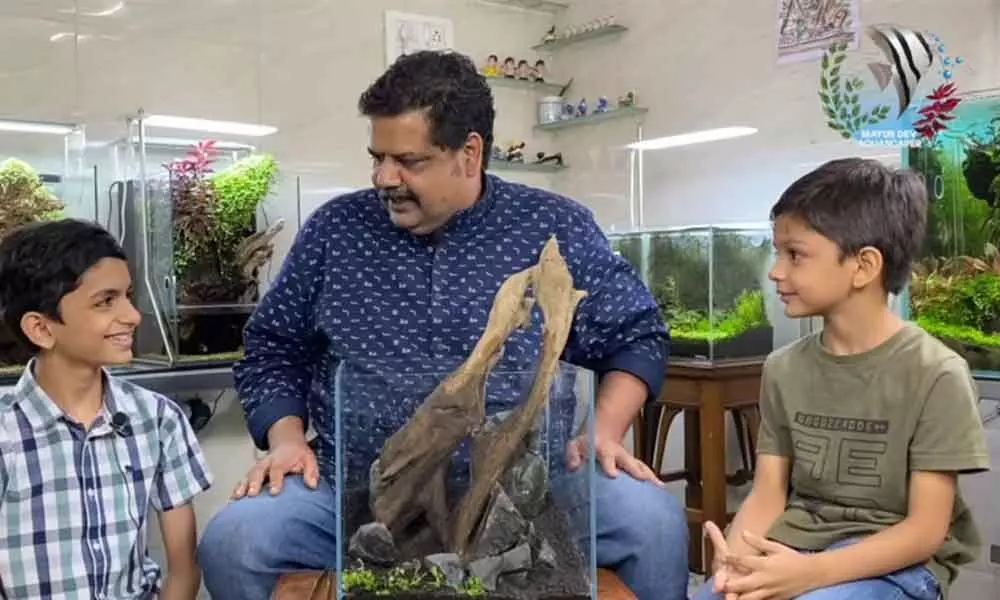Bringing kids closer to nature with aqua art

Mayur Dev with students
Humans and nature are meant to survive hand in hand. However, in this day and age urban kids rarely get a chance to be close to nature.
Humans and nature are meant to survive hand in hand. However, in this day and age urban kids rarely get a chance to be close to nature. Gen-Z is mostly busy streaming their favourite shows on the internet, snap chatting and playing games. Gone are the days when kids would climb trees or have a puddle of water to throw pebbles into, for a simple joyous evening.
Sharing a similar thought that kids should interact with nature as much as they do with technology, a father wanted to introduce his 7-year-old to the art of aquascaping and wanted to get him an aquarium. The idea behind his thought was a rather simple wish that his son would be able to witness nature in the safety of their home and eventually acquire a sense of responsibility and liking for nature and all the treasures it holds. Here's how even a small foot long aquarium works wonders for a child:
Being close to nature
An aquarium brings a small piece of nature into our homes. Everything we see outdoors like rocks, soil, sand, water, plants as well as the fish in it can be experienced indoors. That is the idea behind aqua-scaping; every element in that tank is real and alive.
Science lessons at home
A home aquarium is an environment in itself, a tiny ecosystem. When a child gets their first aquarium, they learn about the soil, water and its behaviour, live bacteria, how plants consume carbon dioxide and how the whole setup gives oxygen generation a push for the fish to thrive.
Each process that takes place in an outdoor fresh water body has to happen inside the aquarium, without which the fish fail to survive. To keep the natural cycles and processes active in the tank for the fish to thrive a child will have to dedicate time in understanding how things work and what goes into maintaining it. And while doing so, children can learn lessons of biology and even ecology.
The emotional impact
Simply looking at an aquarium can reduce stress and anxiety in children. Just like any other pet, fish can be good listeners and can serve as buddies that the child can share secrets with which they may not be comfortable sharing with parents. Looking after the fish and the aquarium takes up quite a bit of attention and can control frustration in the child. Maintaining an aquarium is a very active hobby as well and can help children deter negative emotions
We can derive that aqua-scaping is an art form which not only explains nature and natural habitats, but also teaches a lot of aspects of science, taught in school and university. Aqua-scaping develops cognitive skills in children and makes learning science an easier process while cultivating a love towards nature and promoting artistic traits in them. When one adopts an aquarium, one adopts a piece of nature. It is an art form that has the power to really transform people.
(The author is an aqua artist, naturalist, a science fanatic and an educator)
Learning to be responsible
A fish tank requires minimum maintenance really. However, the actions needed are of high importance like feeding the fish, replacing the water, maintaining a suitable temperature for the fish, keeping an eye on algae and cleaning decoration objects and gravel in the tank.
Fish in home aquariums have limited resources, and what they have or don't have to take care of depends on the human incharge. Children can learn lessons of responsibility by taking care of the aquarium simply by learning the effects their actions have on their pet fish and plants.








